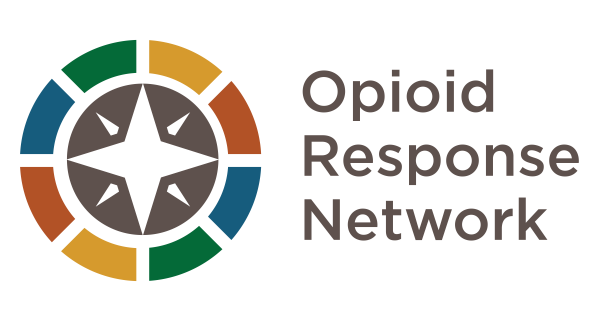Opioid Response Network

Throughout the U.S., states, local communities, and neighborhoods, are experiencing an unprecedented increase in the number of opioid-related deaths. In response to this healthcare crisis The American Academy of Addiction Psychiatry (AAAP) and its coalition of 27 national healthcare partner organizations, including the AAFP, formed the Opioid Response Network, formerly known as the STR-TA consortium, to provide training and technical assistance across the country focusing on the local level needs.
This initiative, funded by the Substance Abuse and Mental Health Services Administration, utilizes experienced prescribers and clinicians, including family physicians, in prevention, treatment, and recovery who are collaborating to facilitate access to evidence-based resources.
All 50 states and 7 territories have a designated Opioid Response (STR-TA) team, led by a Regional Technology Transfer Specialist (TTS), who coordinates the implementation of evidence-based practices. Family physicians and other additional consultants are also available to meet the requester's specific needs. Anyone can request Technical Assistance! No special criteria or restrictions in place.
How It Works
#1. Identify a Need
Any type of project, topic or issue along the continuum of care (prevention, treatment, recovery) for the opioid epidemic can be requested and evaluated.
#2. Make a Reqest
Contact the Opioid Response Network and a Technical Transfer Specialist will contact you within 24 hours and begin working to address your needs.
#3. Get Help
We can help you... Build a coalition | Provide training | Provide mentoring | Conduct educational meetings | Identify local resources | Create clinical teams | and more
Encourage your chapter to host a substance use disorders (SUD) training
Prevention
Prevention is a critical part of addressing the opioid misuse in this country. The Opioid Response Network will work with your community to develop a program that works for you.
- Prevention programs
- Safe opioid prescribing
- Public awareness campaigns
- Naloxone training
- School programs
- Coalition building
- Adult/Adolescent prevention
Treatment
Evidence-based treatment of opioid use disorder, with medications and counseling, has proven to be effective.
- Psychosocial interventions
- Pharmacotherapy: buprenorphine, naltrexone, methadone
- Telepsychiatry
- Pain management
- Buprenorphine induction in ER
Recovery
For long-term recovery to be successful, patients need a program that includes both counseling and medication. It’s a team effort between patients and their providers.
- Medication-assisted recovery
- Peer support/recovery coach
- Recovery housing
- Clinician/public health advocacy
- Recovery coalition/community building
- Integration of peers/peer supervision
Questions? Contact the Project Team.
- Zach Porting (Program Specialist)
zporting@aafp.org
- Bree Mehringer (Senior Program Strategist)
bmehringer@aafp.org
Technical Assistance
If you need technical assistance to support evidence-based practices in the prevention, treatment and recovery of opioid use disorders in your community, submit a request.
- orn@aaap.org
- 401-270-5900
Funding for this initiative was made possible (in part) by grant no. 1H79TI088037 from SAMHSA. The views expressed in written conference materials or publications and by speakers and moderators do not necessarily reflect the official policies of the Department of Health and Human Services; nor does mention of trade names, commercial practices, or organizations imply endorsement by the U.S. Government.